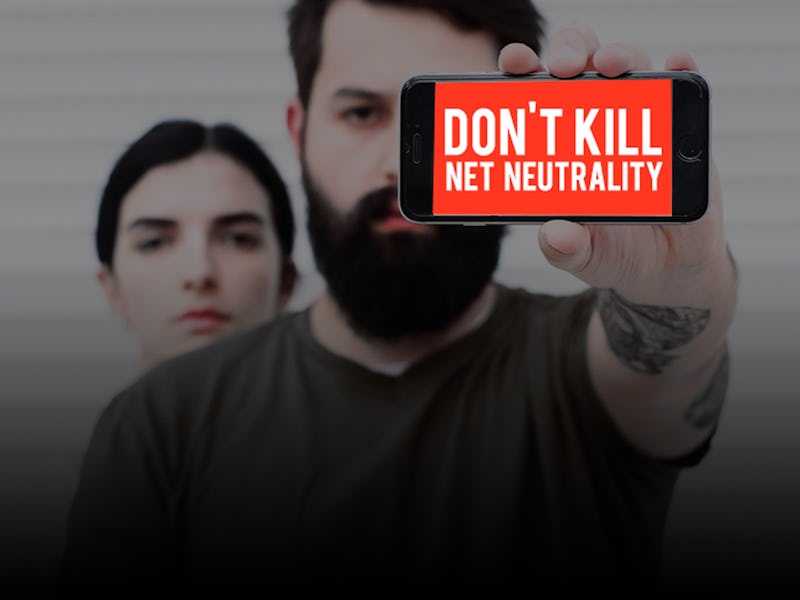Why Was Net Neutrality Repealed? How the End Will Affect You
How you pay for the internet could dramatically change.

The internet in the U.S. is changing. On Monday, the Federal Communications Commission’s new internet regulatory plan became official, repealing regulations introduced under President Obama that governed the internet like a utility. While internet service providers will have the ability to alter their offerings — and how much they charge for them — from this day forward, it’s unlikely that any changes will surface this week. In the coming year, however, we could see consumers’ relationship to the internet change in radical ways.
How Did We Get Here?
On December 21, 2010, the FCC issued an “Open Internet Order.” It ensured that services must be transparent, while offering freedom from unreasonable content blocking or traffic shaping. When the federal court struck down these rules, then-chairman of the FCC Tom Wheeler led the commission to approve a new set of rules under Title II on February 26, 2015, which placed broadband internet service under the same rules that govern landline telephones and other public utilities.
Following Donald Trump’s win in the 2017 presidential election, Wheeler announced in December 2016 that he was stepping down as chairman on January 20 — the same day as Trump’s inauguration. Trump had long criticized net neutrality as “another top-down power grab,” so this led to speculation that the new commissioner would seek to overturn Wheeler’s regulations with the backing of the new administration.
Ajit Pai that was one of Trump’s first appointments, becoming the new chairman of the FCC. Pai, a former lawyer for Verizon and a huge proponent of light touch regulation, quickly started laying the groundwork for a repeal of net neutrality constraints on ISPs. Five weeks after his appointment, Pai told attendees at Barcelona’s Mobile World Congress that the commission “made a mistake” in passing net neutrality, pointing to lower infrastructure spending over the preceding two years.
Seeing the end to net neutrality was nigh, open internet activists soon began staging protests across the country. They argued that without net neutrality rules, providers could slow down certain sites and require users to pay extra for internet “fast lanes,” hurting poorer internet users, as well as small web startups that couldn’t afford to pay ISPs more cash to enable their sites to load quickly.
Twitter as it appeared on Net Neutrality Day of Action.
In December, the FCC voted 3-2 to overturn the Title II regulations that encouraged net neutrality. Under the new plan, the Federal Trade Commission becomes the oversight agency for the broadband industry. It’s tasked with stopping anticompetitive activity and protecting consumers against contract violations, but it won’t enforce the same level of protections as the previous rules did.
What Happens Now
Experts don’t see internet providers jumping straight away. Josh Tabish, a fellow at Fight for our Future, told Inverse last week that changes like paid prioritization will likely creep in slowly because “Congress and internet users will be watching closely.” Describing a potential immediate change as a “PR nightmare,” Gunner Technology CTO Dary Merckens said that users shouldn’t expect any changes “right out of the gate,” explaining that a wait of six months to a year is more likely before providers start making larger changes, like charging users more to load certain types of content.
What Will Happen Next
Responding to public outcry, a number of politicians are seeking to protect net neutrality at the local and state level. New York City mayor Bill de Blasio announced a coalition of 12 mayors from nine states that have pledged to not do business with any ISPs that don’t honor net neutrality. The state of Washington also passed net neutrality legislation in February for the entire state, but the FCC may fight the law as it covers an industry that crosses state lines.
Washington State signs net neutrality bill.
Activists are also turning their attention to a Congressional Review Act that could block the net neutrality repeal. On May 2, Fight for the Future is planning to deliver a letter signed by numerous small businesses to representatives in Congress, aimed at pressuring politicians into supporting a measure that could help local business.
The letter reads:
We are companies who rely on the open Internet to grow our business and reach customers online. We are asking Congress to issue a “Resolution of Disapproval” to restore net neutrality and the other consumer protections that were lost when the Federal Communications Commission (FCC) voted to repeal the 2015 Open Internet Order in December 2017.
Users and businesses need certainty that they will not be blocked, throttled or charged extra fees by Internet service providers. We cannot afford to be left unprotected while Congress deliberates.
We will accept nothing less than the protections embodied in the 2015 order. Please ensure the FCC keeps its tools to protect consumers and business like ours.
The act is unlikely to come into effect, as it needs to pass the House and Senate and requires approval from President Trump. However, a strong showing of support could convince a future administration to revisit the FCC’s decision.